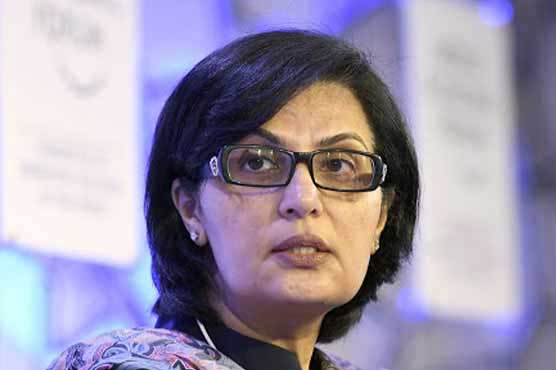Dr Sania represents Pakistan in World Bank's annual meeting

She outlined three points about Pakistan�s approach to malnutrition using social protection lens.
ISLAMABAD (Dunya News) – Special Assistant to the Prime Minister on Social Protection and Poverty Alleviation, Dr. Sania Nishtar joined the high-level ministerial roundtable with ministers from around the world as part of expert panel on “Financing SDG2: Addressing Hunger and Malnutrition in the wake of COVID-19”.
The roundtable took place virtually at the World Bank Headquarters, during the World Bank Annual Meeting.
“In the wake of the pandemic, Pakistan is amongst the first few countries that have made a commitment to protect human capital from negative coping strategies, and over a Billion dollars has been committed to accelerate programs for over 70 million households”, said Dr. Nishtar.
She outlined three points about Pakistan’s current approach to malnutrition using the social protection lens.
Elaborating nutrition focused agenda of Ehsaas at the panel, Dr. Nishtar shared that firstly, even before the pandemic, malnutrition, particularly stunting was a policy priority; our Prime Minister referred to this during his maiden speech; a high-level council had been constituted and when the government structured its social protection program.
Ehsaas, a new nutrition Conditional Cash Transfer program, ‘Ehsaas Nashonuma’ was made its integral part through which consumption of specialized nutritious food is encouraged for vulnerable women and children.
She then described the second point that when the pandemic struck, more than 24 million breadwinners risked becoming food insecure.
As a response, the government provided Ehsaas Emergency Cash for around 15 million families. 97% of the subsistence sum was spent on food averting a major humanitarian catastrophe in our country.
The successful roll out of this massive national programme showed that it is possible for governments to deliver social protection, and nutrition interventions at scale through digital means.
Adding further about innovative financing to combat hunger, Dr. Nishtar shared that by forging partnerships with philanthropies who provide meals at scale, a nationwide soup kitchen initiative has been rolled out under Ehsaas at zero cost to the government for daily wage workers who have been disproportionally affected by the crisis.
Referring to the third point about food prices, which have risen all over the world in the wake of the pandemic, she shared that as a response, a policy shift is currently underway towards targeting of subsidies to benefit the vulnerable since they spend on average ~36% of their expenditure on food (HIES/PLSM Survey 2018-19).
Dr. Nishtar then highlighted that the government is structuring this targeted subsidy program digitally using a payment gateway and digital wallets of retailers, while leveraging the outreach of financial institutions.
The expert panel brought together SAPM Dr. Sania Nishtar and Sri Mulyani Indrawati, Minister of Finance, Indonesia; Dr. Uzziel Ndagijimana, Minister of Finance, Rwanda; Karina Gould, Minister for International Development, Canada; Dag-Inge Ulstein, Minister for International Development, Norway; Norbert Barthle, Parliamentary State Secretary,
Federal Ministry of Economic Cooperation and Development, Germany; and Atsushi Mimura, Deputy Director-General of the International Bureau, Ministry of Finance, Japan.

